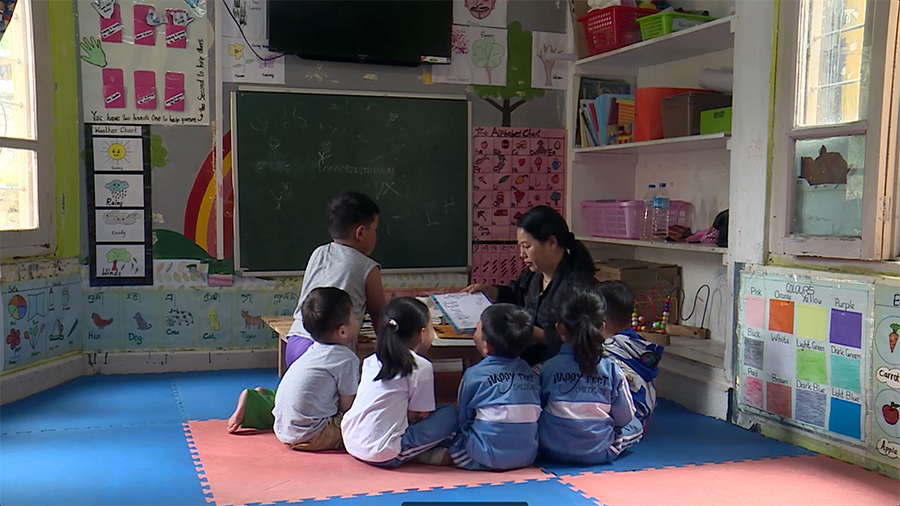
Children who attended Early Childhood Care and Development or ECCD centres performed significantly better in studies than those who did not, according to the National Education Assessment 2024. Studies show this highlights the crucial role of ECCDs in preparing children for school and helping them develop essential life skills through play and interaction.
The National Education Assessment 2024 found that children who attended ECCD generally outperformed their peers across almost all measured domains in Dzongkha, English, Science and Maths in both Grade Ill and Grade VI.
Officials from Bhutan Early Childhood Education and Development Association said that ECCD provides children with stimulating experiences through play, social interaction, and exploration. They said that these will help them develop language, motor, and emotional skills.
It also helps children adjust better when they enter primary school.
Yeshey Dorji, Regional Coordinator of Thimphu, Bhutan Early Childhood Education Association said, “They learn through interaction by touching, seeing, and exploring their surroundings. In just a single day, children in ECCD centres absorb far more than those who stay at home. For instance, when a child who has attended ECCD joins Pre-Primary alongside one who hasn’t, there is a clear difference in their communication skills, confidence, and social interaction.”
Despite this, the officials said that some parents still believe that sending children to ECCD centres puts pressure on them to study from a young age.
However, they clarify that ECCD is not about formal academic learning but about learning through play.
Jamtsho, President/Founder of Bhutan Early Childhood Education and Development Association said, “Many parents in the country believe that early childhood is only a time for children to play and should be spent at home. However, experts say children learn best in ECCD centres, where play and interactive activities such as drama help them develop important skills and knowledge.”
According to UNESCO, the years from birth to eight are a crucial period of brain development. Children who are healthy, safe, and learning during these years are more likely to reach their full potential and contribute meaningfully to society as adults.
Officials say the National Education Assessment 2024 findings serve as a reminder that providing children with the right start through ECCD can have long-lasting benefits on their learning, growth, and future success.
The President/Founder of the Bhutan Early Childhood Education Association said, “The Sustainable Development Goals aim to ensure that by 2030, all children have access to Early Childhood Care and Development programmes through government and private centres. In Bhutan, we aim to achieve this target by 2029. However, the government and private efforts alone are not enough, parents must also understand the importance of ECCD and be willing to enroll their children.”
Furthermore, the assessment recommends conducting further studies to better understand the performance of students who attended ECCD. It also calls for a review and strengthening of ECCD programmes across the country to enhance their quality and effectiveness.
Sangay Chozom
Edited by Kipchu









